In an exclusive interview, Pakistani President Pervez Musharraf discusses Western fears that his country’s nuclear arsenal will fall into the hands of terrorist.
In an exclusive interview, Pakistani President Pervez Musharraf discusses Western fears that his country’s nuclear arsenal will fall into the hands of terrorists, about Benazir Bhutto’s death and the possibility of resigning
Pakistan is a breeding ground for terrorism, and Al-Qaeda wants to topple your government and take over the nuclear weapons. Is Pakistan the most dangerous country?
This is highly exaggerated. But I do not deny the fact that Al-Qaeda is operating here. They are carrying out terrorism in the tribal areas, they are the masterminds behind these suicide bombings. While all of this is true, one thing is for sure: The fanatics can never take over Pakistan. They are neither militarily so strong that they can defeat our army, with its 5,00,000 soldiers, nor politically — and they do not stand a chance of winning elections.
The New York Times has reported that Vice President Dick Cheney and Secretary of State Condoleezza Rice are planning covert operations with CIA agents in the tribal belt. Have you been informed about this?
I would never allow American forces to operate on Pakistan’s soil. If we need support, we ask for it. It is we who are operating, nobody else.We and American intelligence officials fully share our insights and there is total coordination. They have conveyed that President Bush considers me to be a most sincere friend.
The next US president could be a Democrat. They might cut back military and economic aid to Pakistan. Have the Democratic front-runners contacted you?
All these politicians do not have access to intelligence information that could provide them with an accurate view of the situation. When these people get access to that kind of intelligence, I am sure they will not take a different approach than their predecessor. Why would they want to do something to destabilise us, a nuclear power? They will not act against their own national interest.
The biggest nightmare of the West is that Pakistan’s nuclear arsenal could fall into the hands of religious fanatics. Is the fear that far-fetched?
Before we were officially declared a nuclear power in 1998, our nuclear programme was kept top secret. At that time the leading scientist AQ Khan had direct contact with the president and could act independently. When I became the chief in 1999, I suspected that AQ Khan had been doing prohibited things and I fired him. Then I decided to introduce a custodial control, the Army Strategic Force Command, which is organised like a military corps to keep the assets safe. Everything is accounted for. Terrorists could not even take out a bolt from a rifle.
You exclude the possibility that people in the army or the ISI intelligence agency who sympathise with religious fanatics could infiltrate this system?
ISI does not handle any nuclear issue at all. They have nothing to do with it.
Many Pakistanis doubt that the Feb. 18 elections will be fair.
Must I prove that elections are not rigged? How can I? I had to postpone the polls for six weeks because of security reasons. Everything will be correct. I have invited international observers.
Would you be willing to work with opposition leaders like Nawaz Sharif or with Asif Ali Zardari, who publicly accuses you of being responsible for the murder of his wife?
National interests should reign supreme. We have to carry on fighting terrorism and we need a functioning, democratic government. I am ready to work with whoever wins.
Who killed Benazir Bhutto — and how? New conspiracy theories popping up.
We obtain new evidence every day. Today, I am quite reasonably sure about who killed her, because we have tapped the telephones of militant extremists. We heard the voice of Bethulla Mehsud, a terrorist from South Waziristan, who expressed his satisfaction about Bhutto’s death.
You have asked Scotland Yard to help with the investigation, but you have refused to allow a probe by the United Nations, Why?
What does the UN have to do with this? There is a killing and we will investigate ourselves. If we lack forensic or technical details we ask Scotland Yard. But you should not underestimate the capability of a nuclear state that has 160 million people and a very well organised military and intelligence service. We are very capable.
You have survived two assassination attempts. Do you consider yourself the possible next target?
Shots either hit you or they do not. I have been lucky that the would-be assassins did not get me. But I also take measures and I know how to protect myself.
For a long time the Taliban, who today work closely together with Al-Qaeda, were supported by the ISI in order to promote Pakistani interests in Afghanistan. Will they gain the upper hand?
I am certainly fighting the Taliban — they are dangerous people. But we also see hopeful trends. In many places the local militants — who sympathise with the Taliban are turning against foreign militants and Al-Qaeda.
Many influential Americans seem to be looking for a new strong man in Pakistan and appear ready to drop you. What makes you sure that you can count on the loyalty of your successor as army chief, Gen Kiyani?
After 46 years in the army you learn to judge people. You fight wars, you experience hard times. And there is something even stronger than personal loyalty — loyalty to a cause, for a vision. Kiyani and I share that vision on Pakistan, on the Taliban, on Al-Qaeda, on politics, on the media. We are two of a kind.
After eight years of ruling this country, what do you see as your greatest achievement and your most dramatic failure?
My greatest achievement has been the economic revival of Pakistan. When I took power, we were in danger of going bankrupt and becoming a failed state. I do not see complete negative development, but some things could have perhaps gone better. Finishing and curbing terrorism and extremism — there is still a lot to be done on
this front.
We still do not understand why you imposed a state of emergency on Nov. 3, 2007. Which measures would you not have been able to take to tackle extremists without emergency law?
The unlimited utilisation of the military was an issue, the media issue was critical, also the judiciary. The chief justice was corrupt, involved in nepotism, and he interfered directly in cases that were out of his jurisdiction. The nail in the coffin came when he challenged the sovereignty of the parliament, which legally elected me as the president.
![submenu-img]() DNA Explainer: Why was Iranian president Ebrahim Raisi, killed in helicopter crash, regarded as ‘Butcher of Tehran’?
DNA Explainer: Why was Iranian president Ebrahim Raisi, killed in helicopter crash, regarded as ‘Butcher of Tehran’?![submenu-img]() 1 dead, many injured after London-Singapore flight hit by severe...
1 dead, many injured after London-Singapore flight hit by severe...![submenu-img]() This film was based on iconic love story, actors and director died midway, was released incomplete 23 years later
This film was based on iconic love story, actors and director died midway, was released incomplete 23 years later![submenu-img]() Meet man who used to go medicine factory in childhood, now runs Rs 109000 crore pharma company, his net worth is...
Meet man who used to go medicine factory in childhood, now runs Rs 109000 crore pharma company, his net worth is...![submenu-img]() Akshay Kumar 'accidently' collided with RTO officer's bike in Bangkok, shares what happened next: 'I immediately...'
Akshay Kumar 'accidently' collided with RTO officer's bike in Bangkok, shares what happened next: 'I immediately...' ![submenu-img]() Maharashtra HSC 12th 2024: Result declared, know how to check
Maharashtra HSC 12th 2024: Result declared, know how to check![submenu-img]() Meet man who topped IIT-JEE, studied at IIT Bombay, then went to MIT, now is...
Meet man who topped IIT-JEE, studied at IIT Bombay, then went to MIT, now is...![submenu-img]() Meet man who once used to sell newspapers at 9, cracked UPSC exam, he is now…
Meet man who once used to sell newspapers at 9, cracked UPSC exam, he is now…![submenu-img]() Meet woman who secured high-paying job, not from IIT, IIM, VIT, her record-breaking package is...
Meet woman who secured high-paying job, not from IIT, IIM, VIT, her record-breaking package is...![submenu-img]() Maharashtra HSC Result 2024: Class 12th result to be released today, know time, steps to check
Maharashtra HSC Result 2024: Class 12th result to be released today, know time, steps to check![submenu-img]() DNA Verified: Is CAA an anti-Muslim law? Centre terms news report as 'misleading'
DNA Verified: Is CAA an anti-Muslim law? Centre terms news report as 'misleading'![submenu-img]() DNA Verified: Lok Sabha Elections 2024 to be held on April 19? Know truth behind viral message
DNA Verified: Lok Sabha Elections 2024 to be held on April 19? Know truth behind viral message![submenu-img]() DNA Verified: Modi govt giving students free laptops under 'One Student One Laptop' scheme? Know truth here
DNA Verified: Modi govt giving students free laptops under 'One Student One Laptop' scheme? Know truth here![submenu-img]() DNA Verified: Shah Rukh Khan denies reports of his role in release of India's naval officers from Qatar
DNA Verified: Shah Rukh Khan denies reports of his role in release of India's naval officers from Qatar![submenu-img]() DNA Verified: Is govt providing Rs 1.6 lakh benefit to girls under PM Ladli Laxmi Yojana? Know truth
DNA Verified: Is govt providing Rs 1.6 lakh benefit to girls under PM Ladli Laxmi Yojana? Know truth![submenu-img]() AI models show bikini style for perfect beach holiday this summer
AI models show bikini style for perfect beach holiday this summer![submenu-img]() Laapataa Ladies actress Chhaya Kadam ditches designer clothes, wears late mother's saree, nose ring on Cannes red carpet
Laapataa Ladies actress Chhaya Kadam ditches designer clothes, wears late mother's saree, nose ring on Cannes red carpet![submenu-img]() Urvashi Rautela mesmerises in blue celestial gown, her dancing fish necklace steals the limelight at Cannes 2024
Urvashi Rautela mesmerises in blue celestial gown, her dancing fish necklace steals the limelight at Cannes 2024![submenu-img]() Kiara Advani attends Women In Cinema Gala in dramatic ensemble, netizens say 'who designs these hideous dresses'
Kiara Advani attends Women In Cinema Gala in dramatic ensemble, netizens say 'who designs these hideous dresses'![submenu-img]() Influencer Diipa Büller-Khosla looks 'drop dead gorgeous' in metallic structured dress at Cannes 2024
Influencer Diipa Büller-Khosla looks 'drop dead gorgeous' in metallic structured dress at Cannes 2024![submenu-img]() DNA Explainer: Why was Iranian president Ebrahim Raisi, killed in helicopter crash, regarded as ‘Butcher of Tehran’?
DNA Explainer: Why was Iranian president Ebrahim Raisi, killed in helicopter crash, regarded as ‘Butcher of Tehran’?![submenu-img]() DNA Explainer: Why did deceased Iranian President Ebrahim Raisi wear black turban?
DNA Explainer: Why did deceased Iranian President Ebrahim Raisi wear black turban?![submenu-img]() Iran President Ebrahim Raisi's death: Will it impact gold, oil prices and stock markets?
Iran President Ebrahim Raisi's death: Will it impact gold, oil prices and stock markets?![submenu-img]() Haryana Political Crisis: Will 3 independent MLAs support withdrawal impact the present Nayab Saini led-BJP government?
Haryana Political Crisis: Will 3 independent MLAs support withdrawal impact the present Nayab Saini led-BJP government?![submenu-img]() DNA Explainer: Why Harvey Weinstein's rape conviction was overturned, will beleaguered Hollywood mogul get out of jail?
DNA Explainer: Why Harvey Weinstein's rape conviction was overturned, will beleaguered Hollywood mogul get out of jail?![submenu-img]() This film was based on iconic love story, actors and director died midway, was released incomplete 23 years later
This film was based on iconic love story, actors and director died midway, was released incomplete 23 years later![submenu-img]() Akshay Kumar 'accidently' collided with RTO officer's bike in Bangkok, shares what happened next: 'I immediately...'
Akshay Kumar 'accidently' collided with RTO officer's bike in Bangkok, shares what happened next: 'I immediately...' ![submenu-img]() Meet man, his grandfather founded political party, uncle was CM, he ditched it for Bollywood, worked for Bhansali, now..
Meet man, his grandfather founded political party, uncle was CM, he ditched it for Bollywood, worked for Bhansali, now..![submenu-img]() Meet actor who worked with SRK, Salman, Sushmita, gave many flop films, quit acting, married granddaughter of CM..
Meet actor who worked with SRK, Salman, Sushmita, gave many flop films, quit acting, married granddaughter of CM..![submenu-img]() 'Pregnant for sure': Katrina Kaif, Vicky Kaushal's viral video from London sparks pregnancy speculations
'Pregnant for sure': Katrina Kaif, Vicky Kaushal's viral video from London sparks pregnancy speculations ![submenu-img]() Viral video: Bride makes dramatic entrance from giant ice cube at snowy Alpine wedding in Switzerland
Viral video: Bride makes dramatic entrance from giant ice cube at snowy Alpine wedding in Switzerland![submenu-img]() Elephant lifts safari truck with tourists in shocking viral video, watch
Elephant lifts safari truck with tourists in shocking viral video, watch![submenu-img]() In another gaffe, Joe Biden says he was US 'Vice President' during COVID-19 pandemic, watch viral video
In another gaffe, Joe Biden says he was US 'Vice President' during COVID-19 pandemic, watch viral video![submenu-img]() Meet Nihar Thackeray, lesser-known nephew of Uddhav Thackeray, he is Eknath Shinde's...
Meet Nihar Thackeray, lesser-known nephew of Uddhav Thackeray, he is Eknath Shinde's...![submenu-img]() Heroic buffalo herd rescues one of their own from lion ambush, video is viral
Heroic buffalo herd rescues one of their own from lion ambush, video is viral


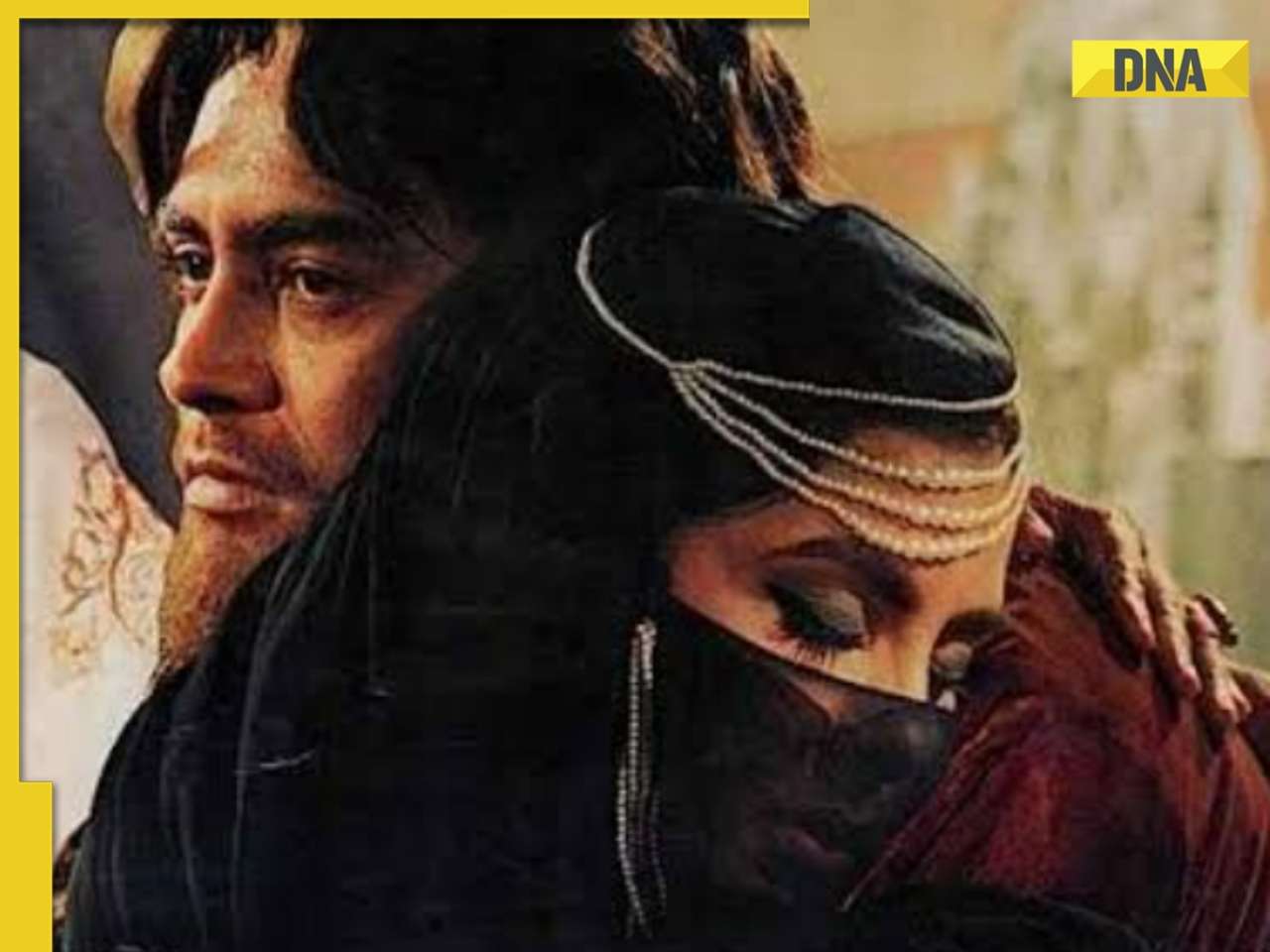
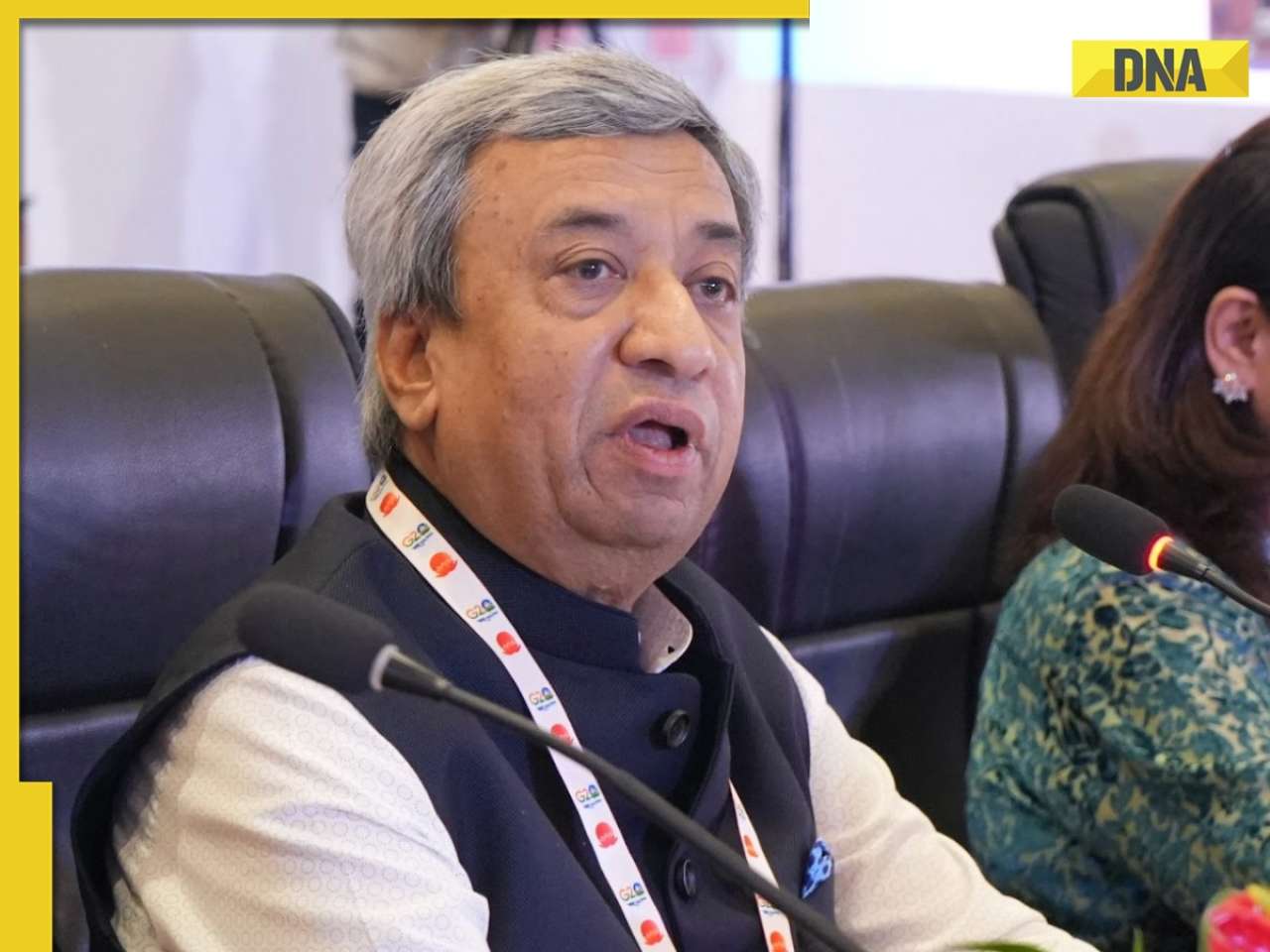
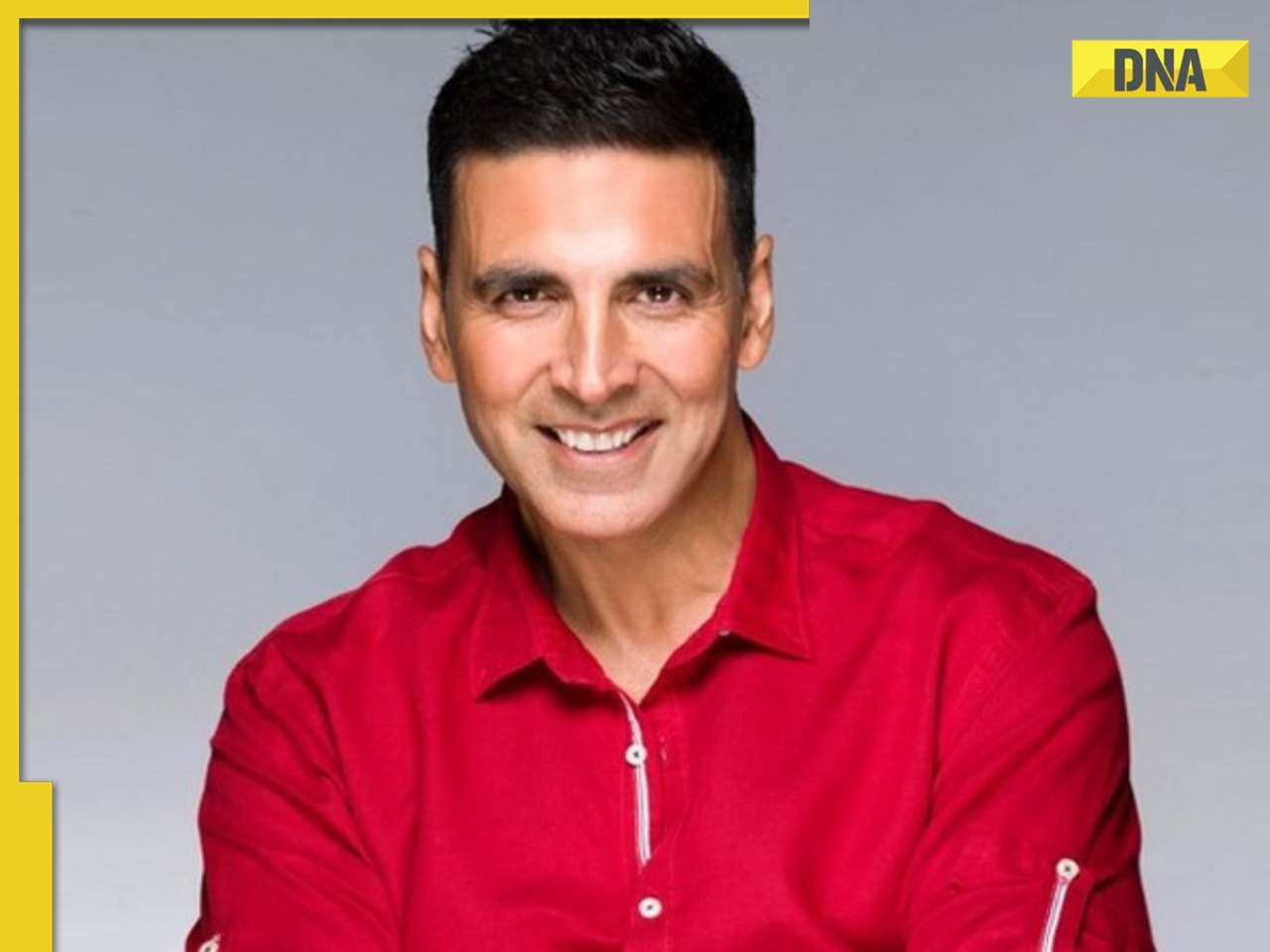





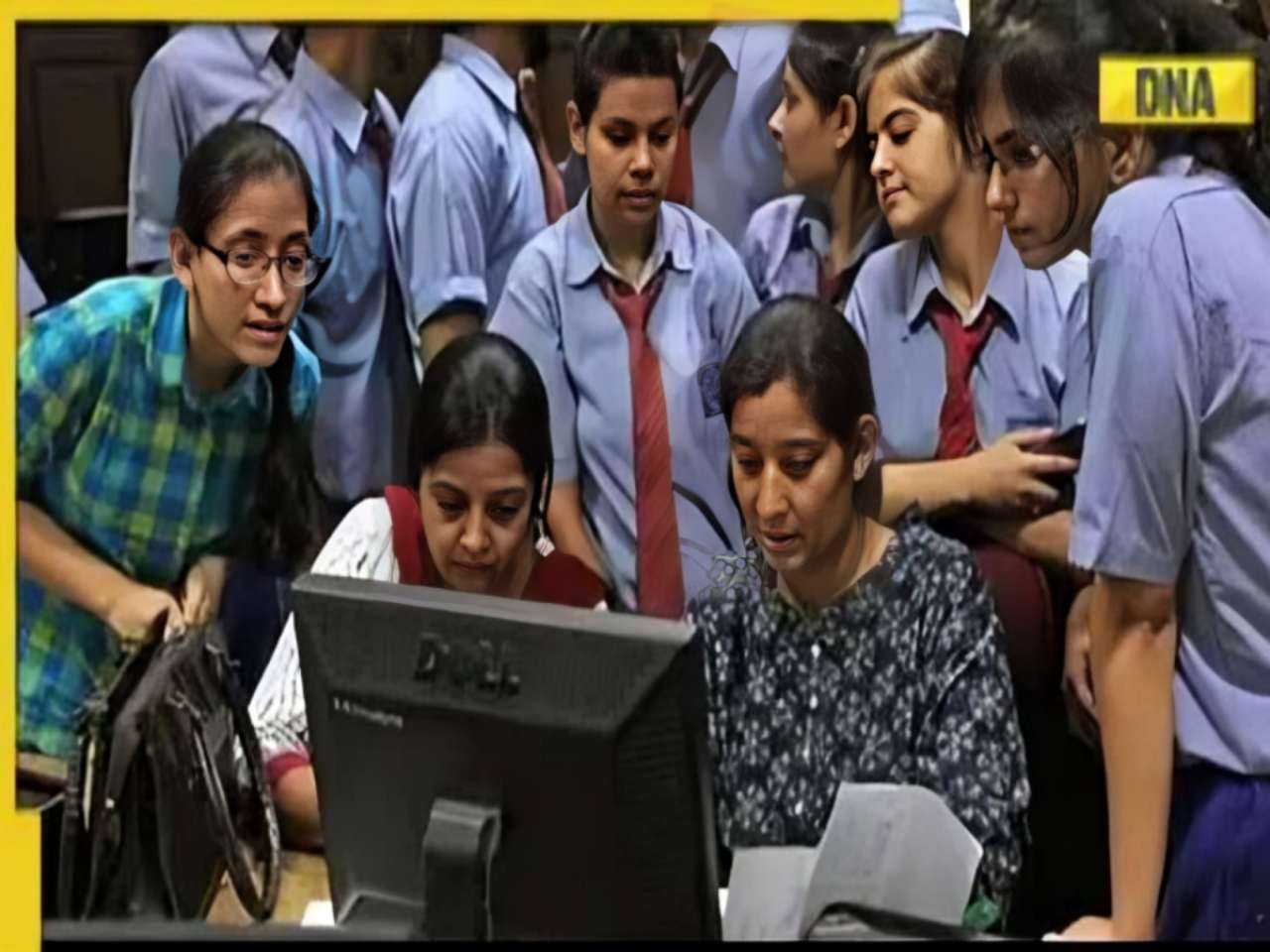
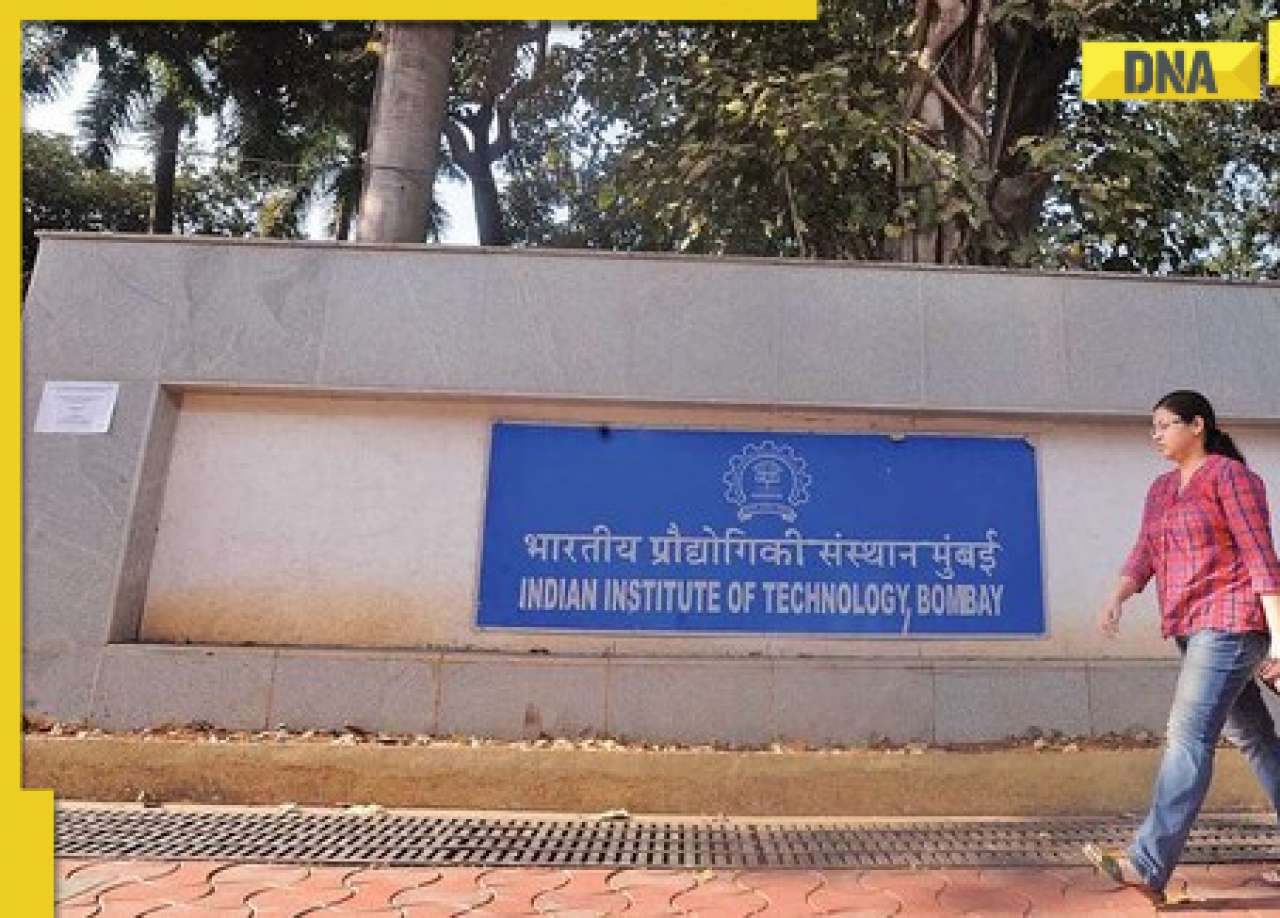
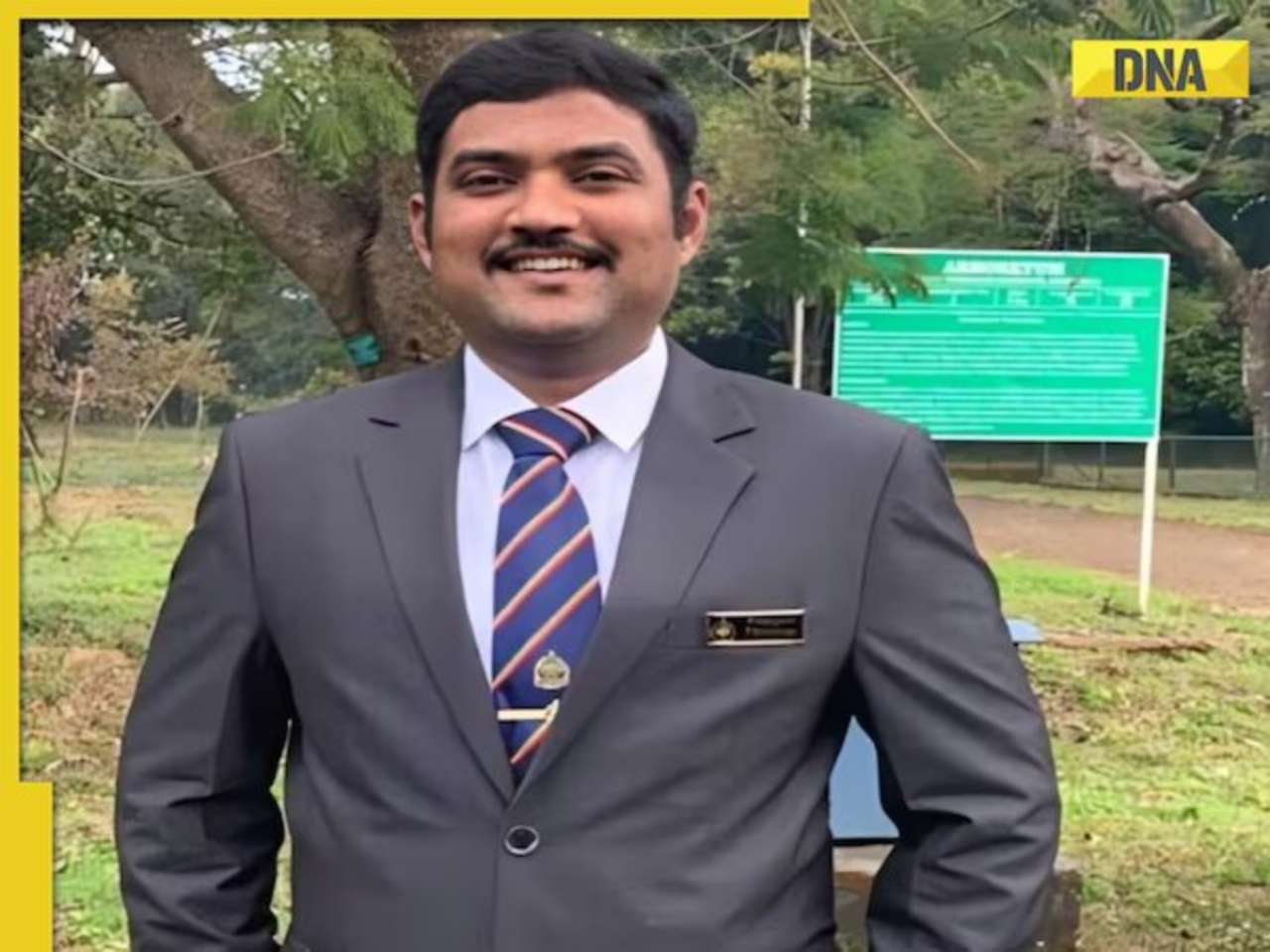
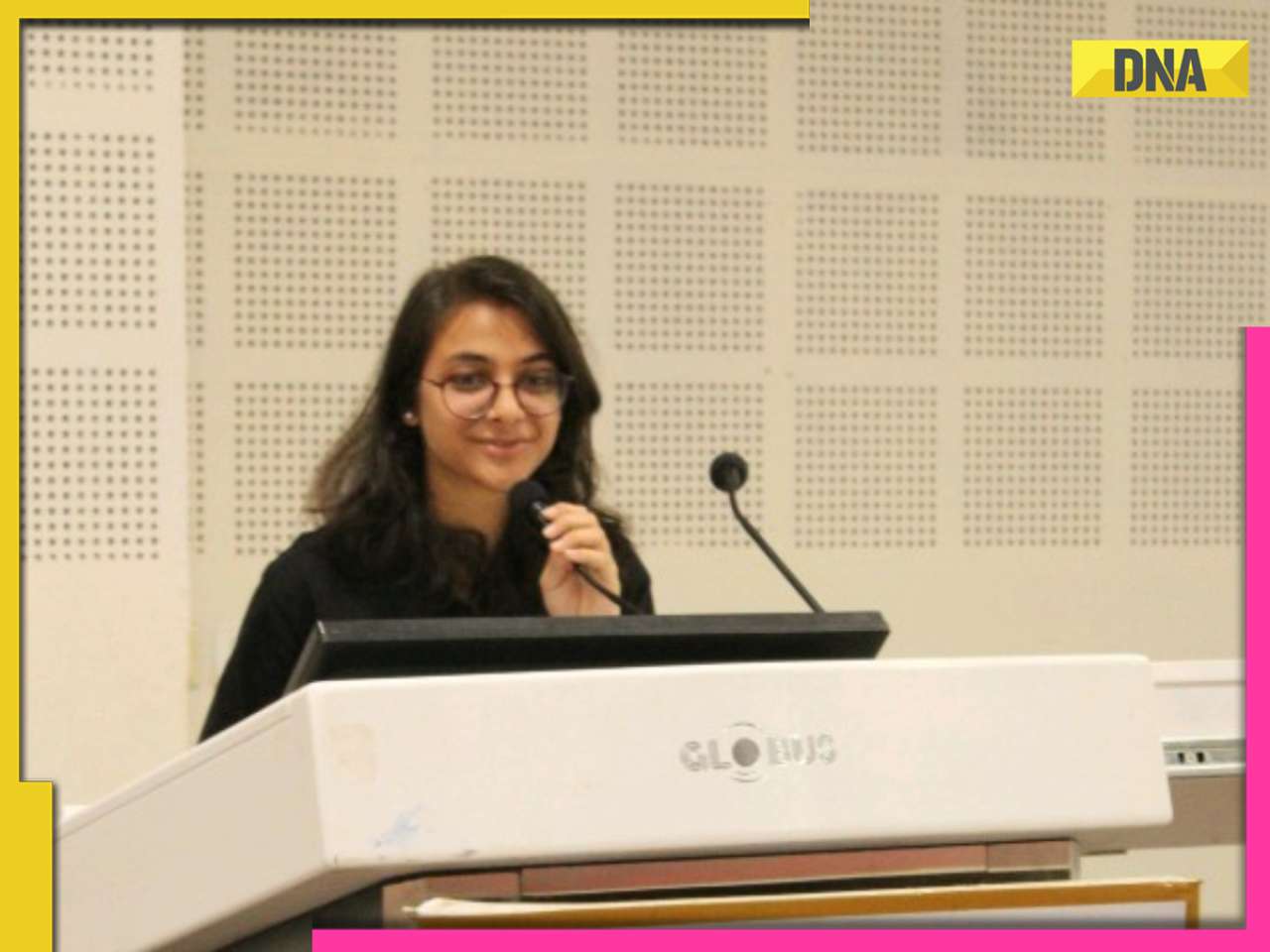
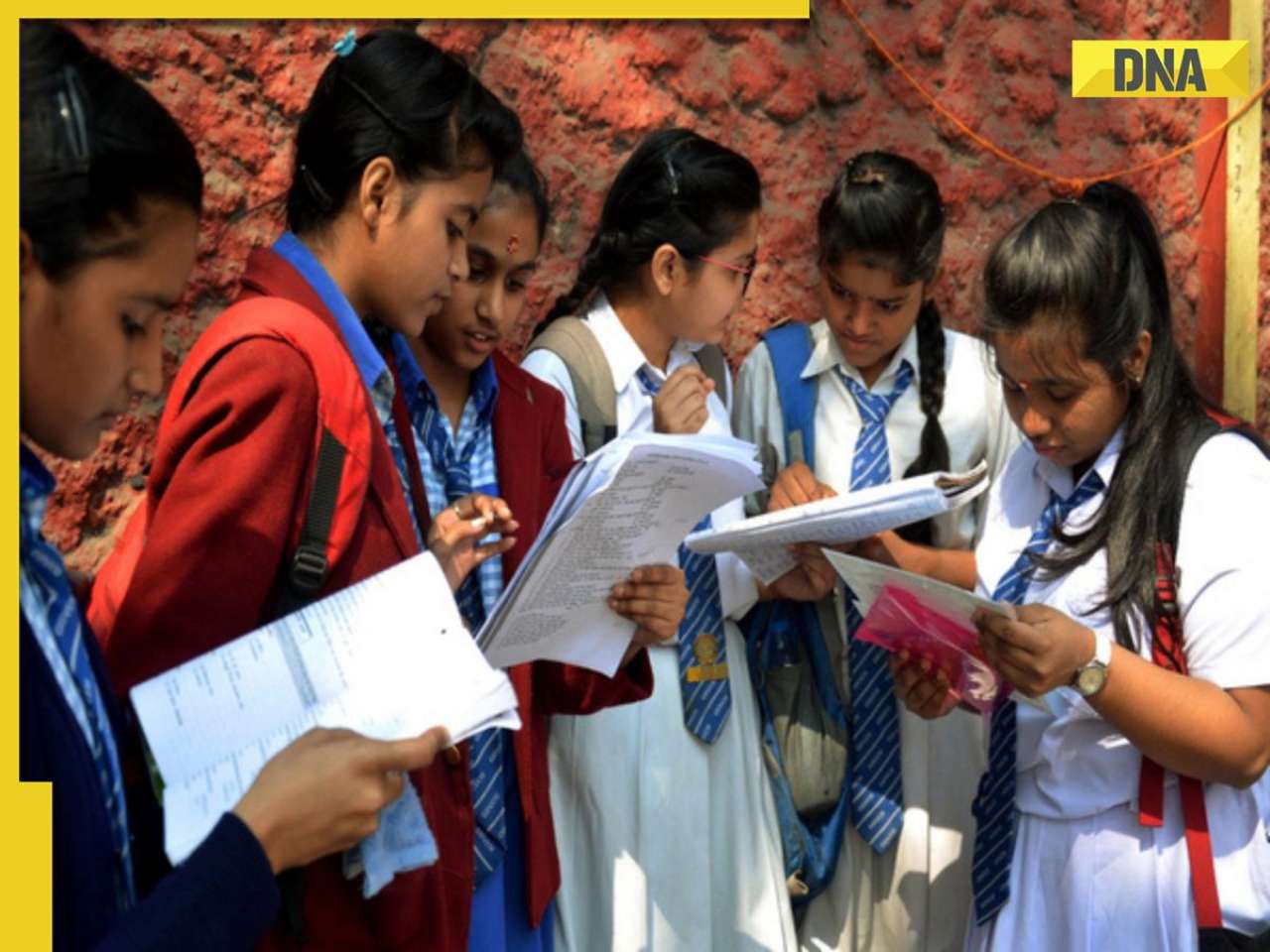






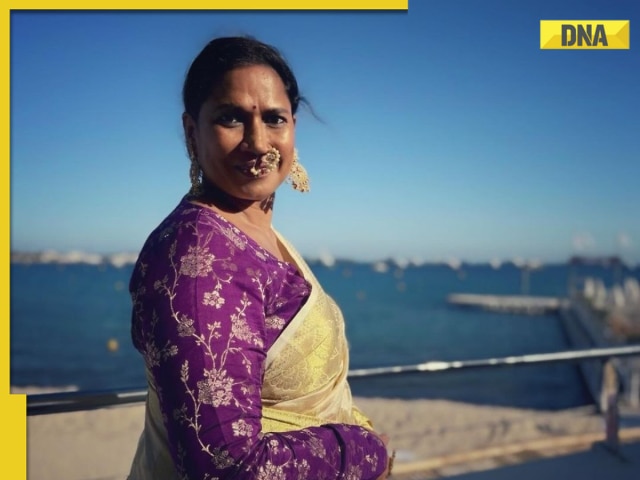







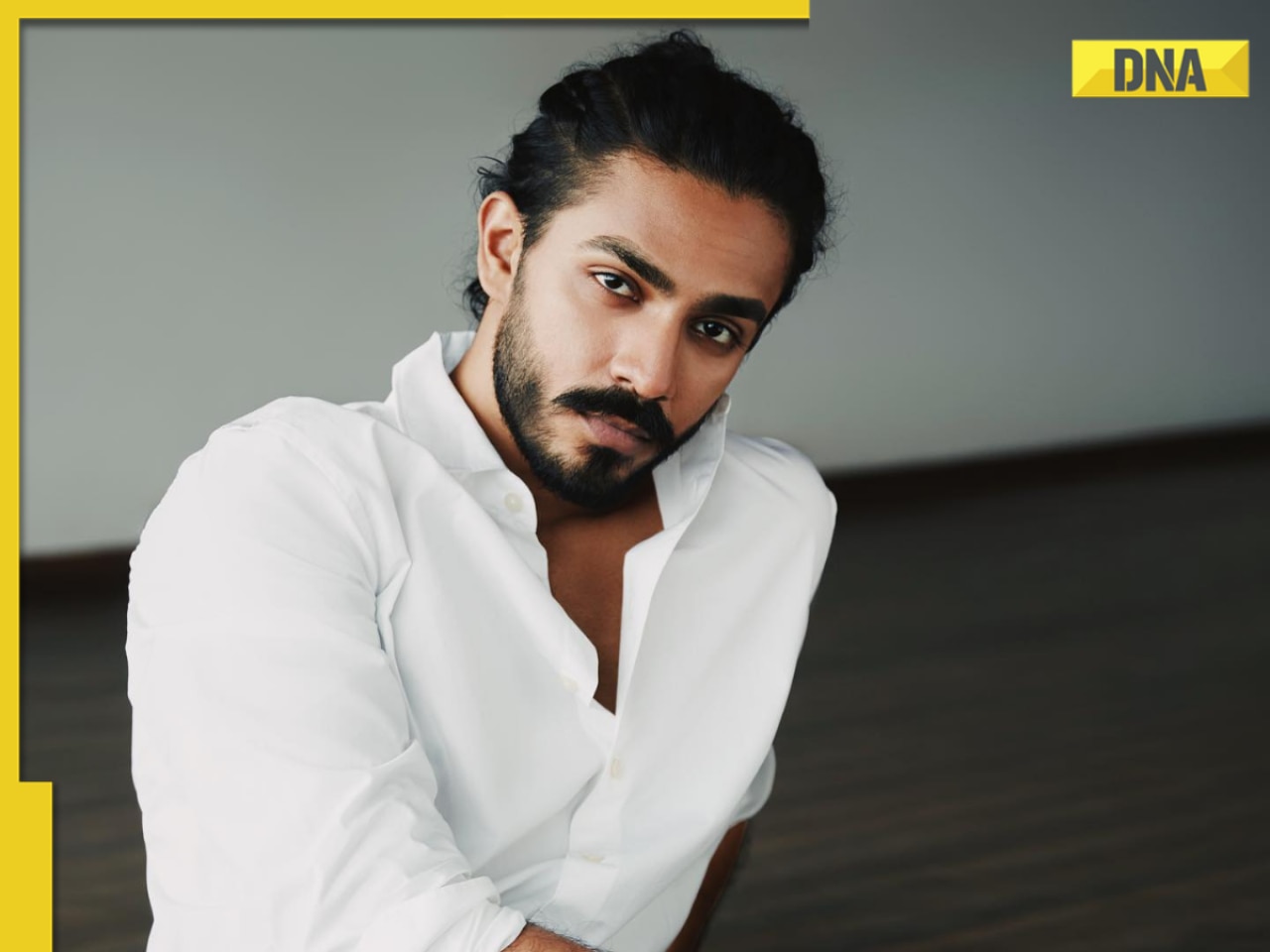
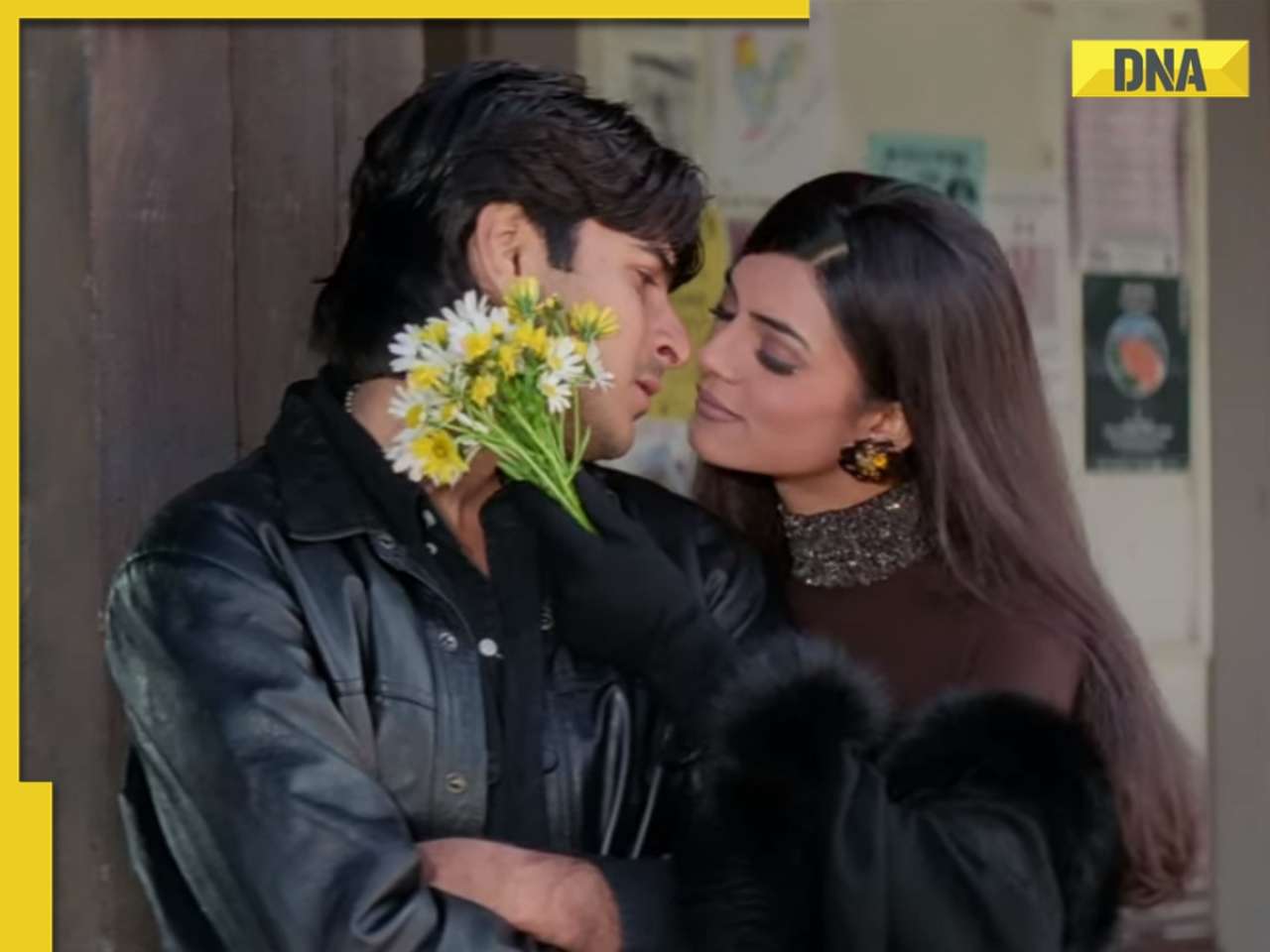
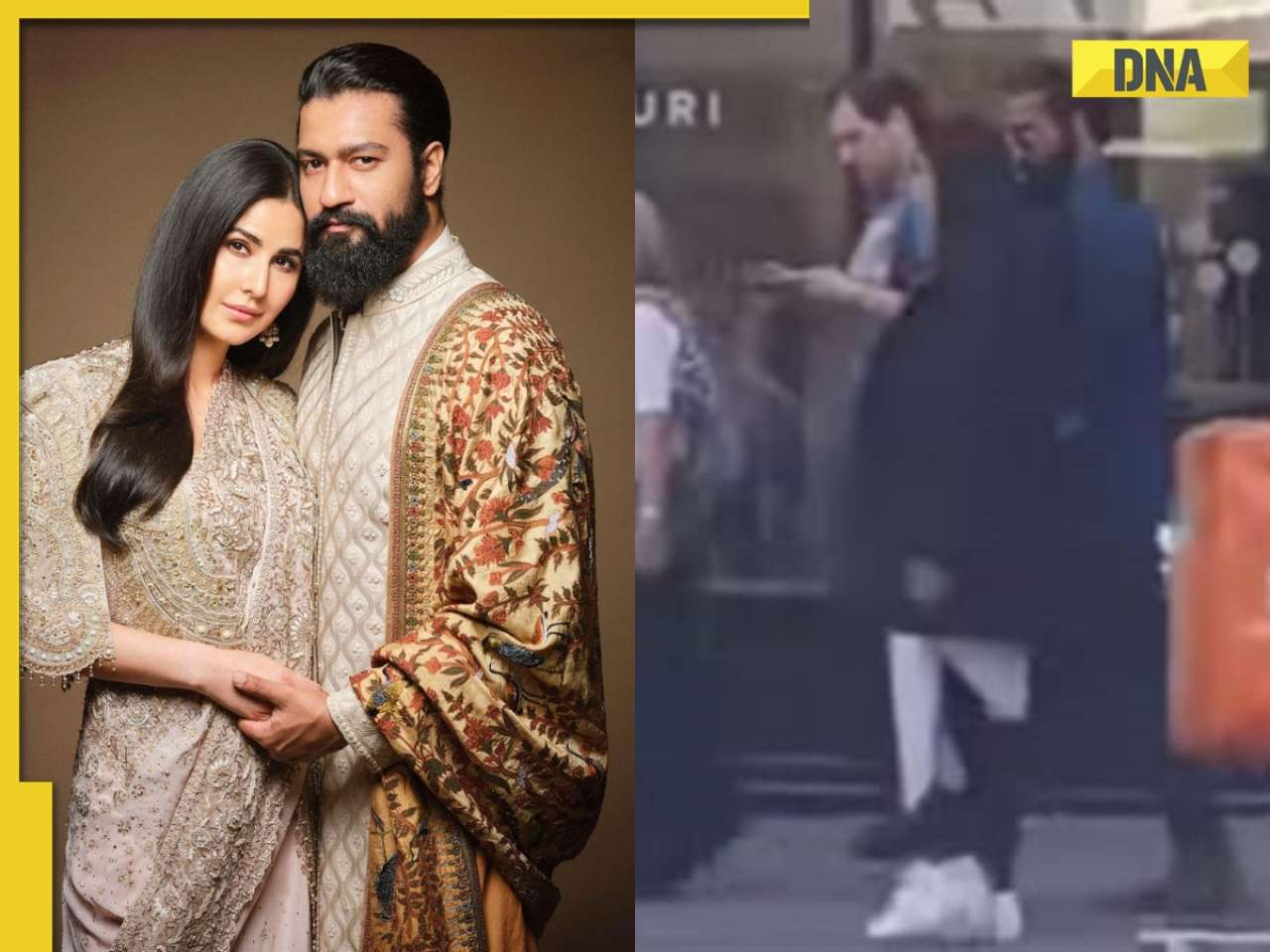
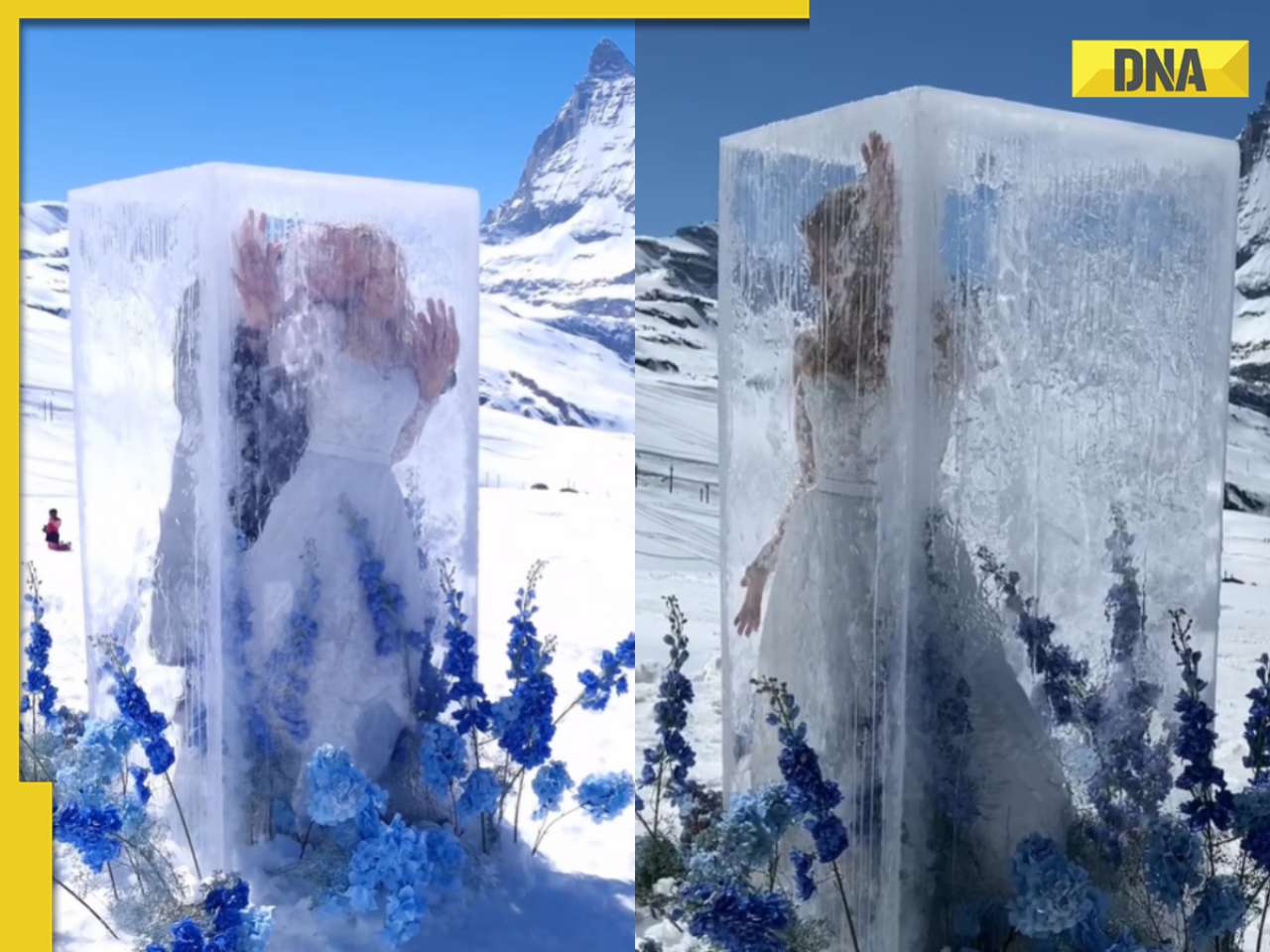
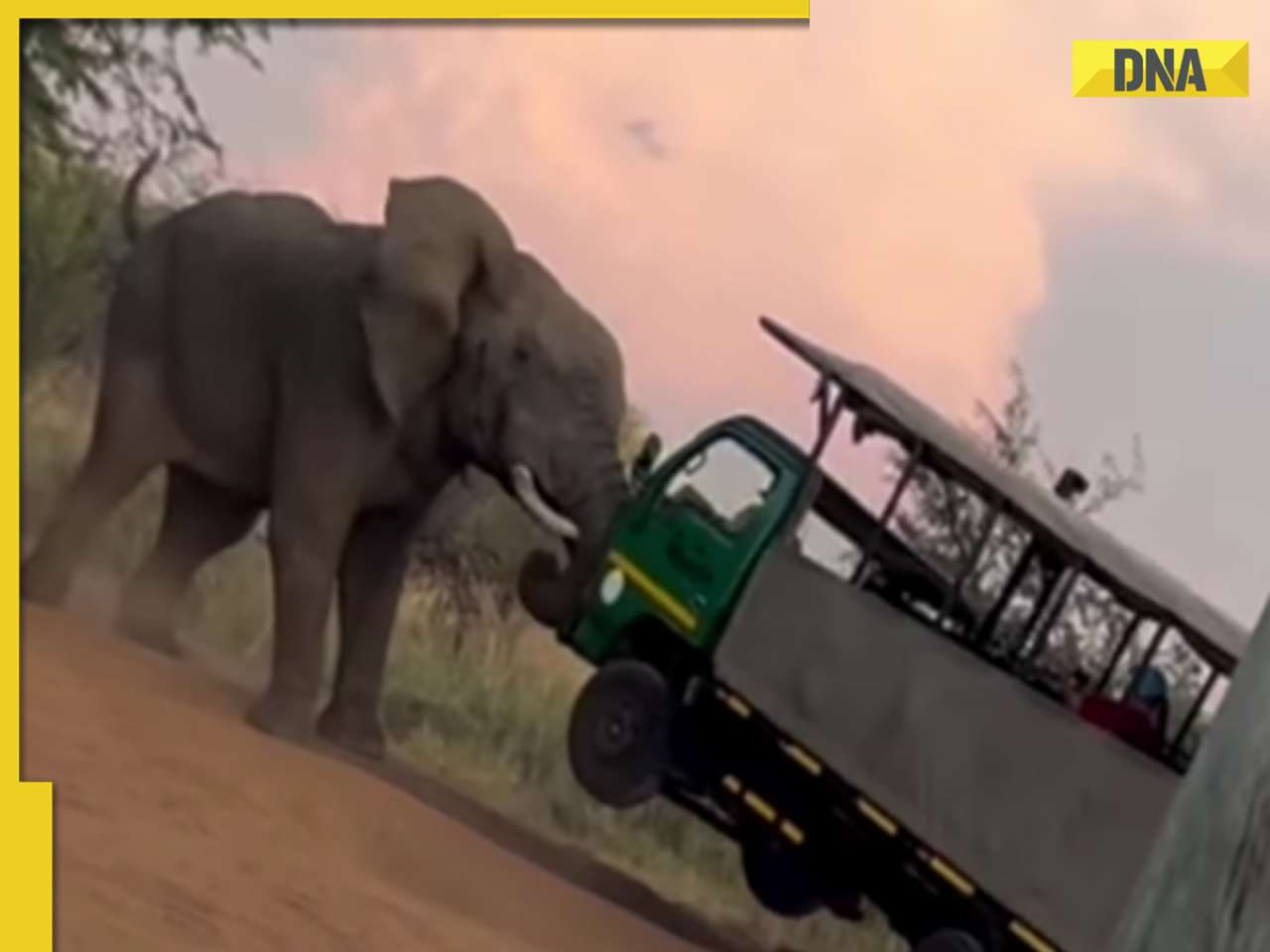
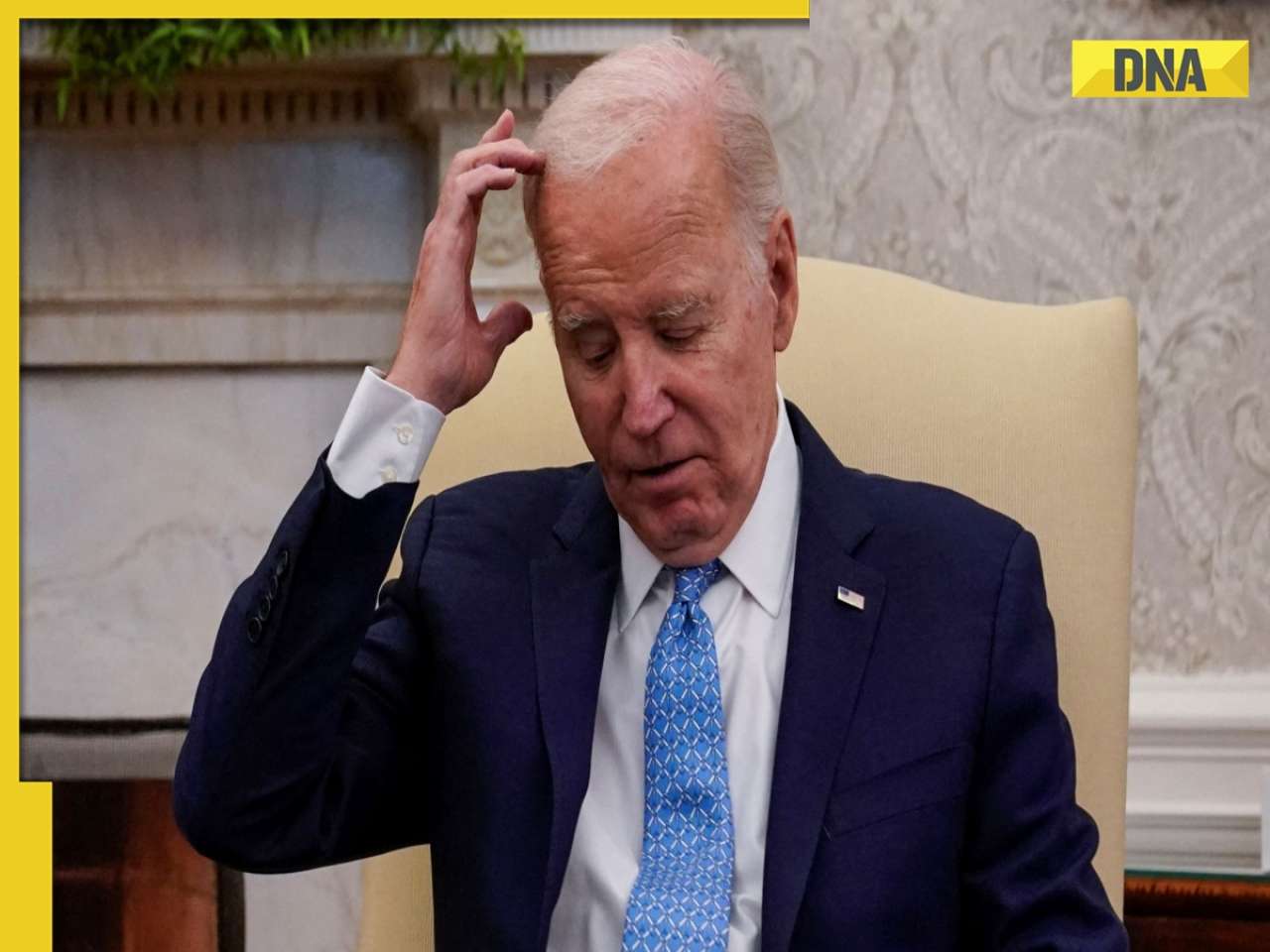
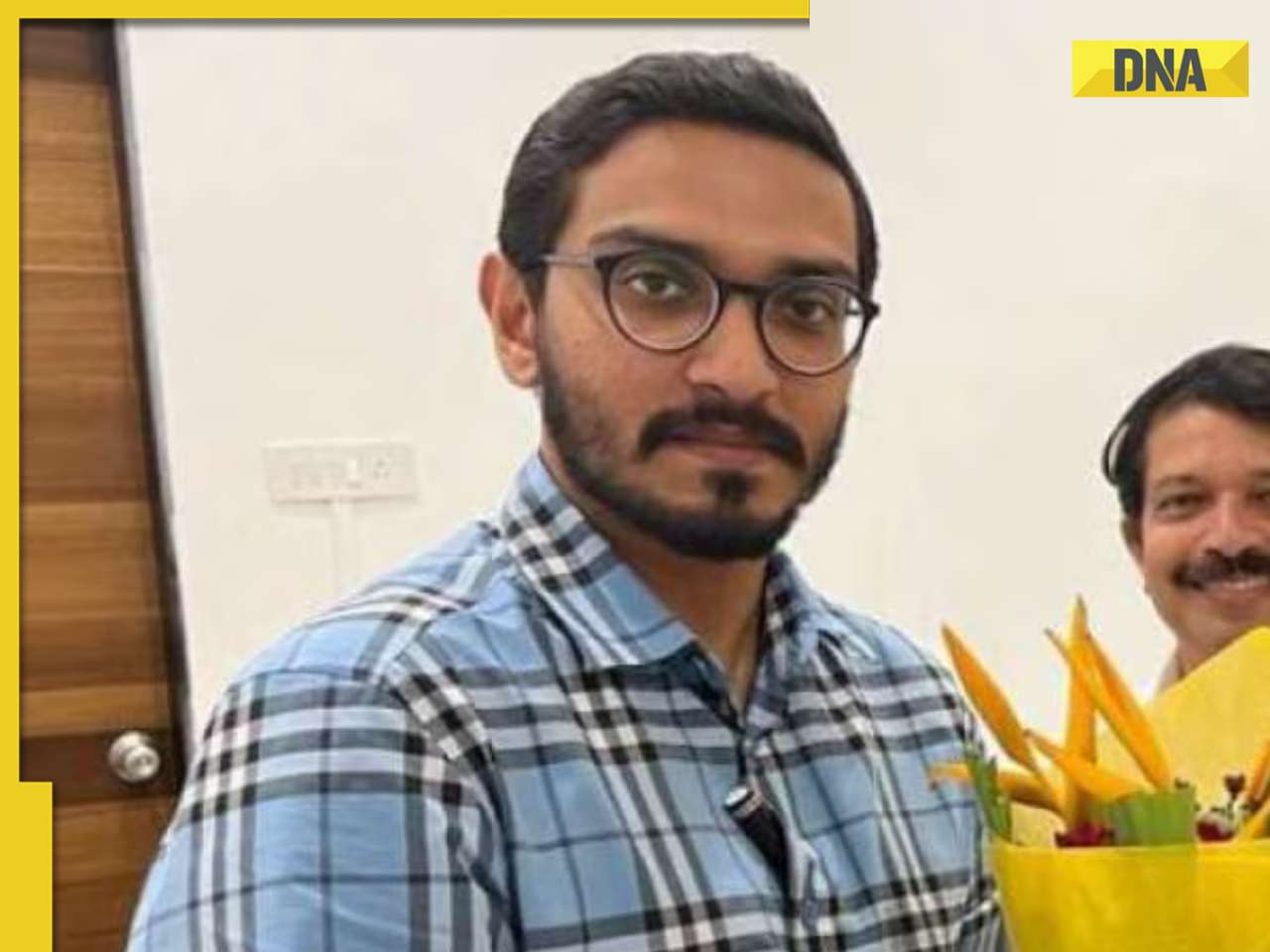
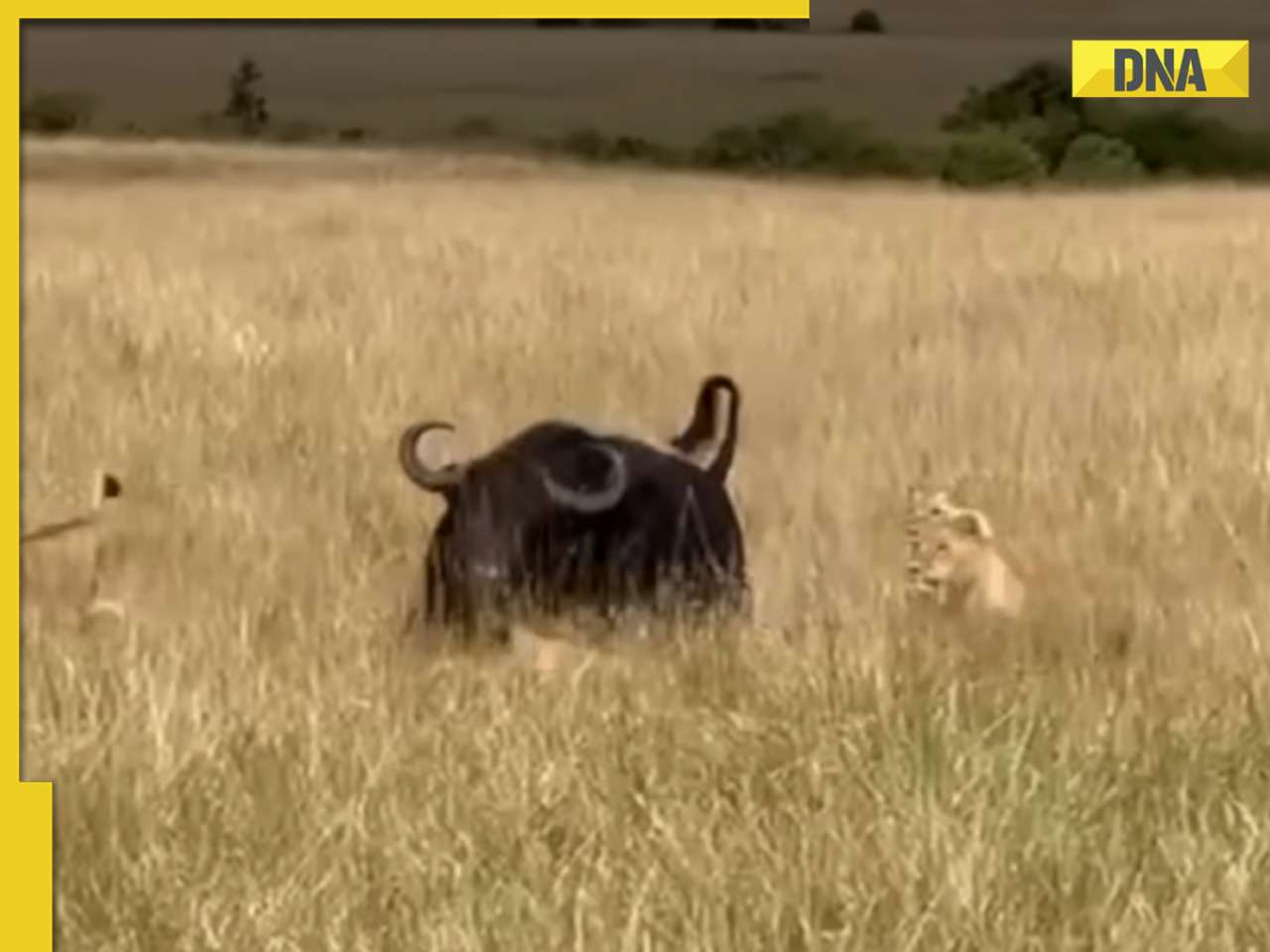


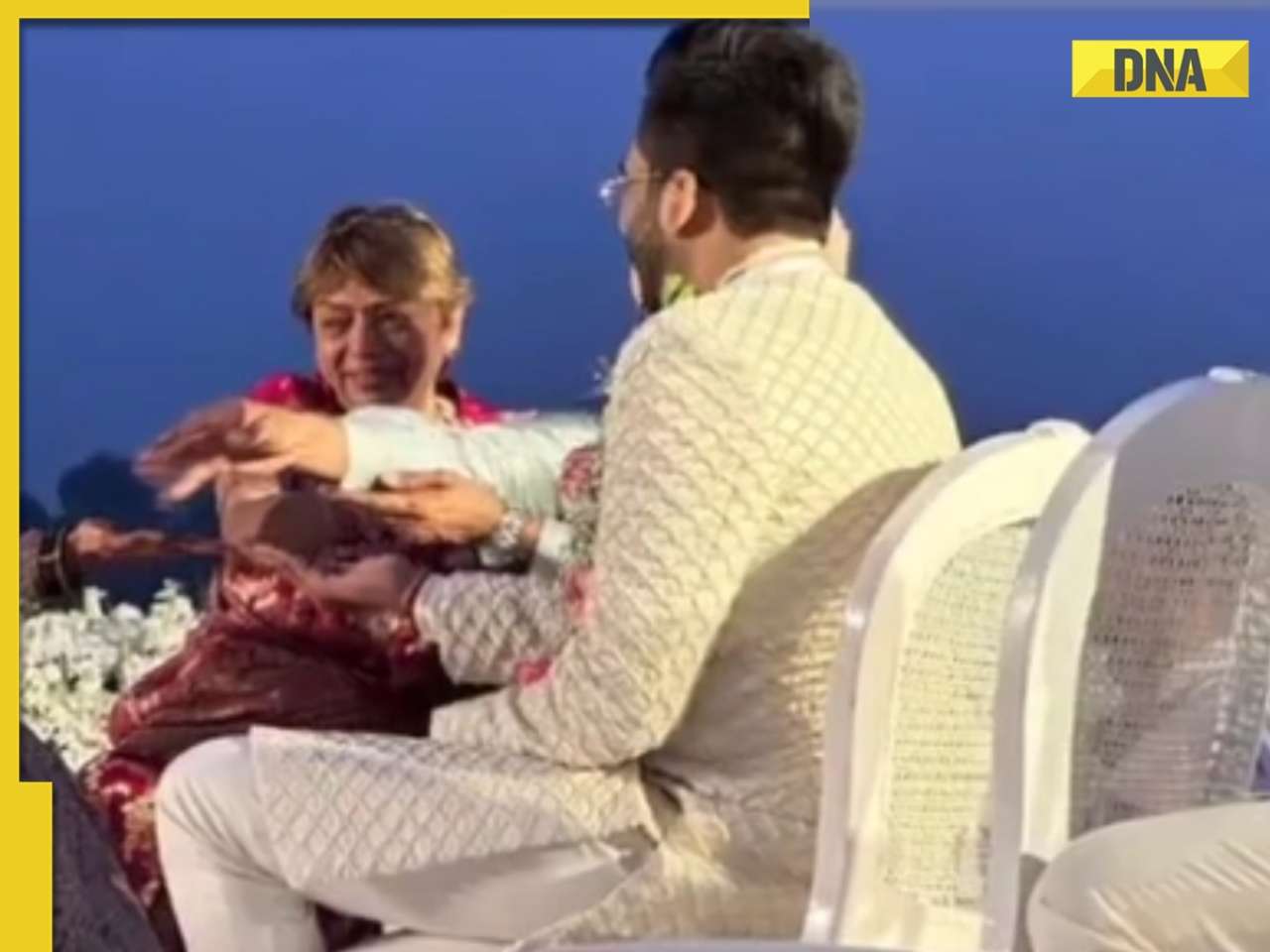




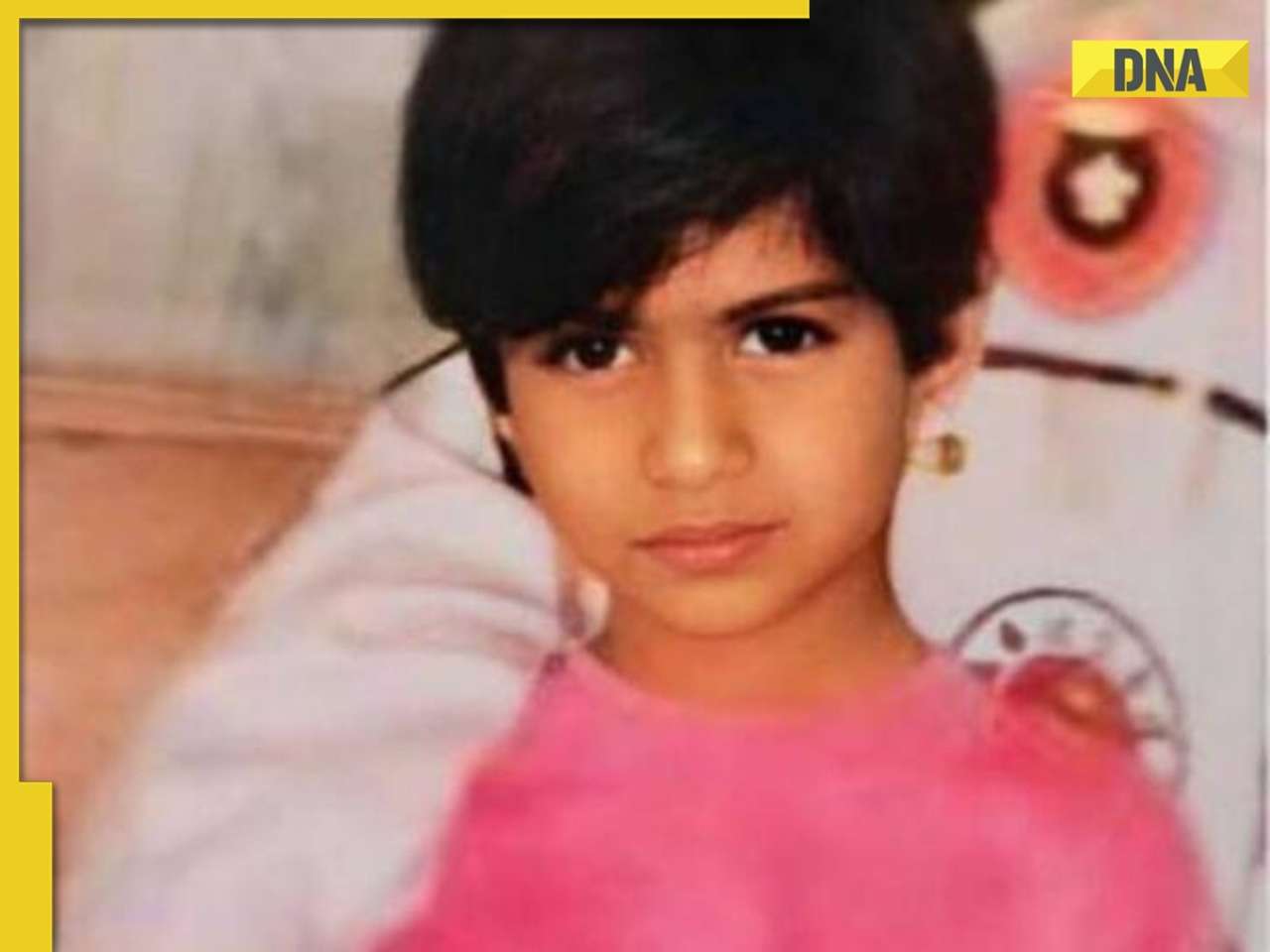

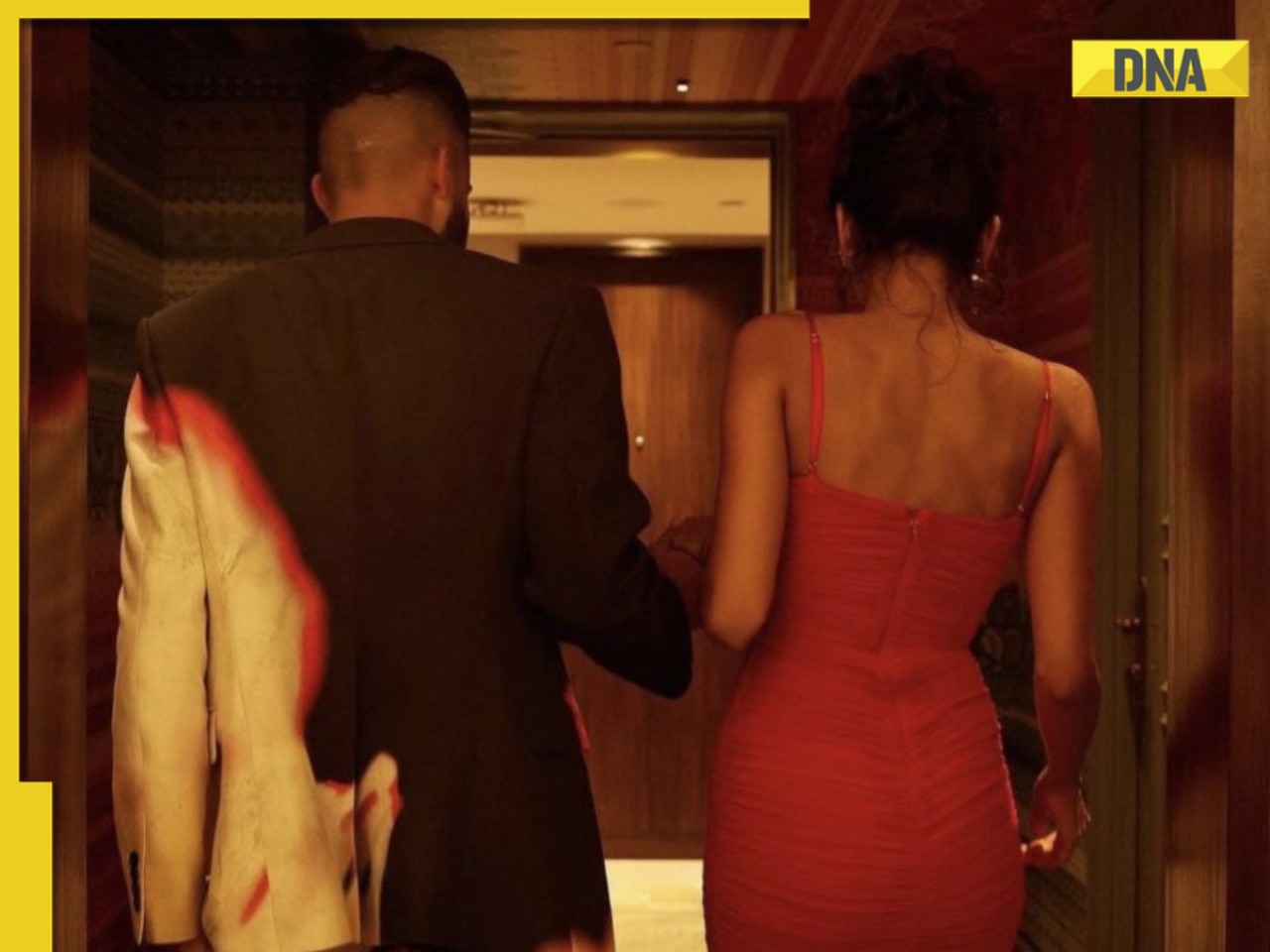


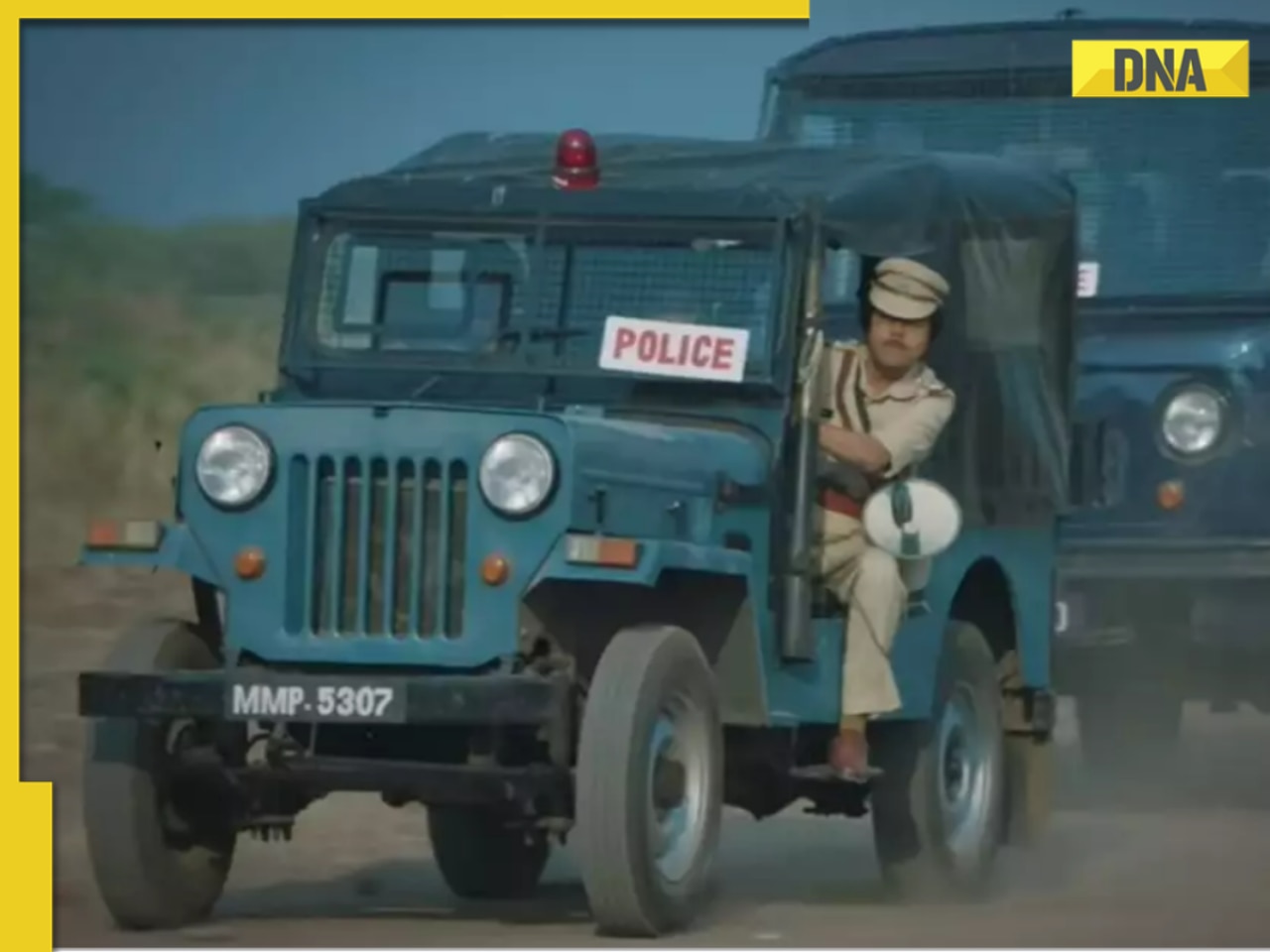


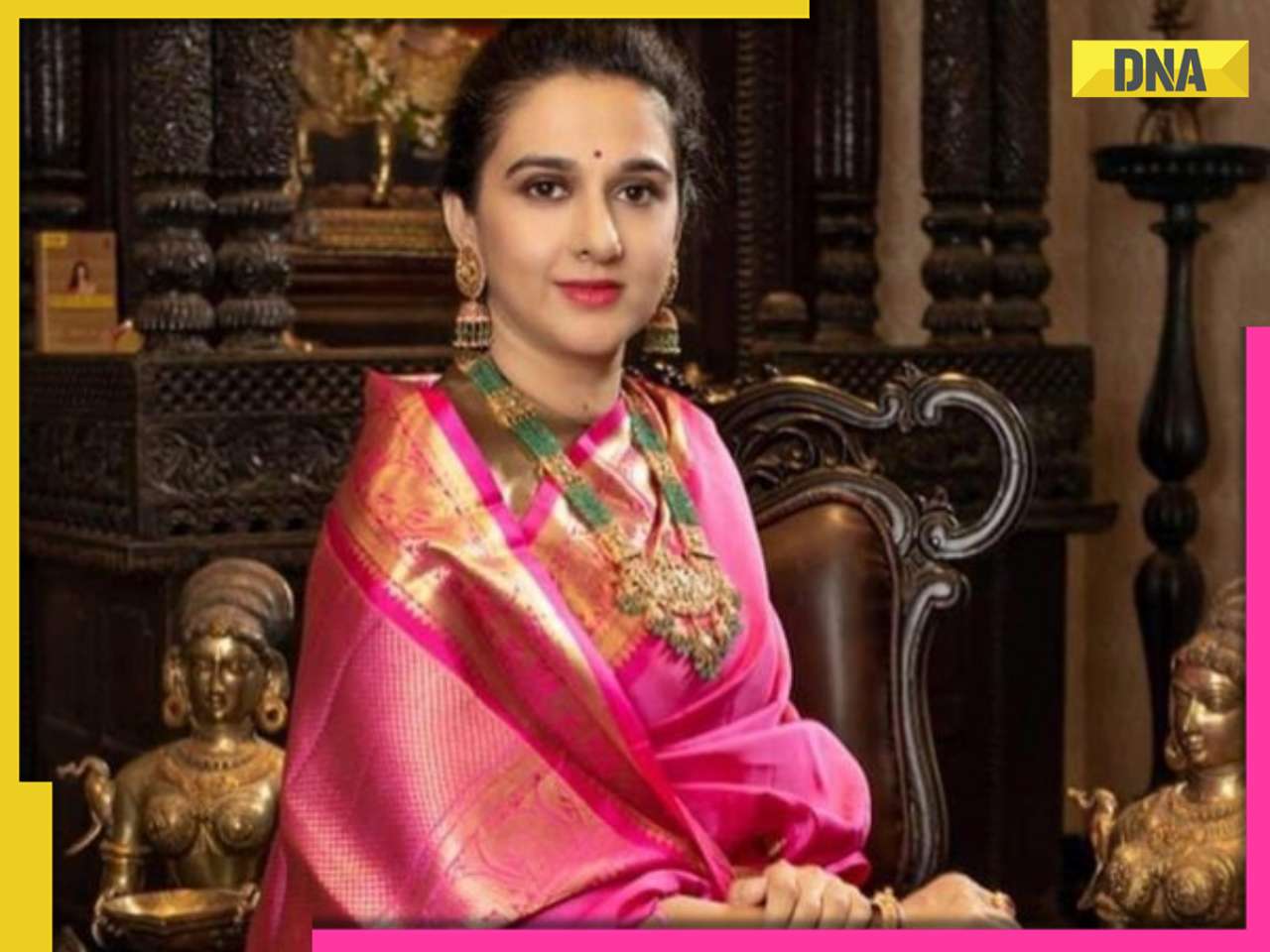




)
)
)
)
)
)